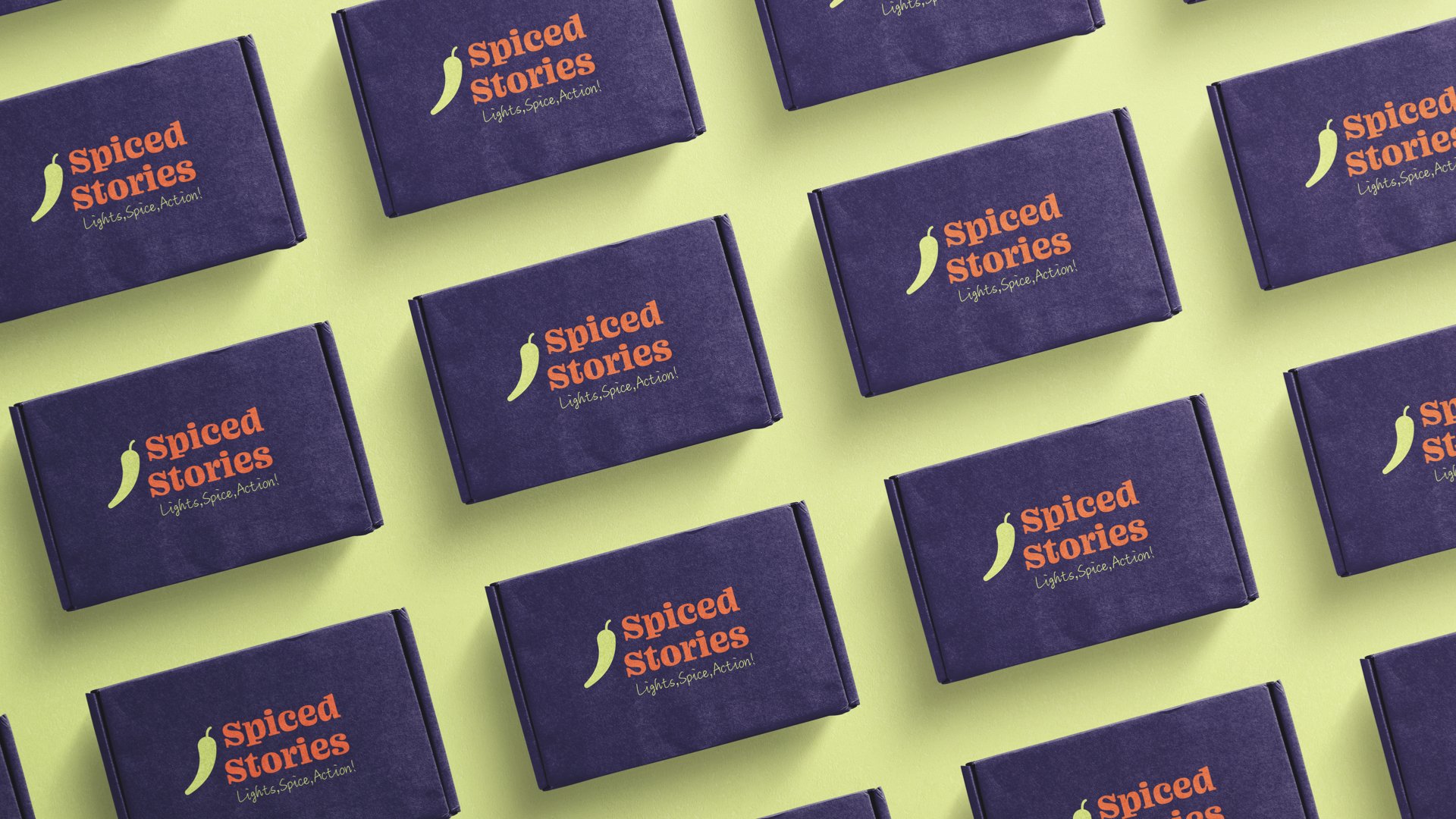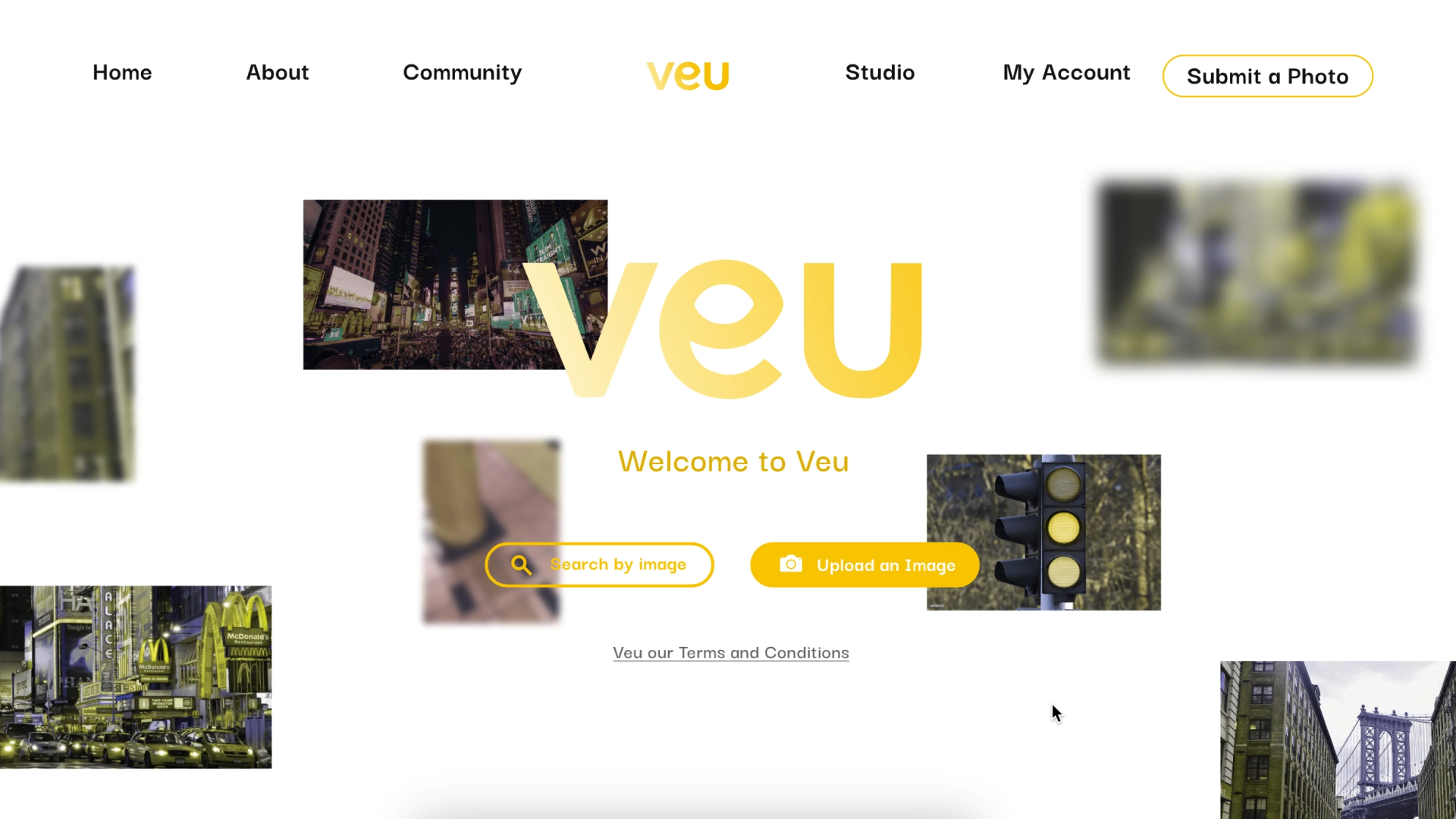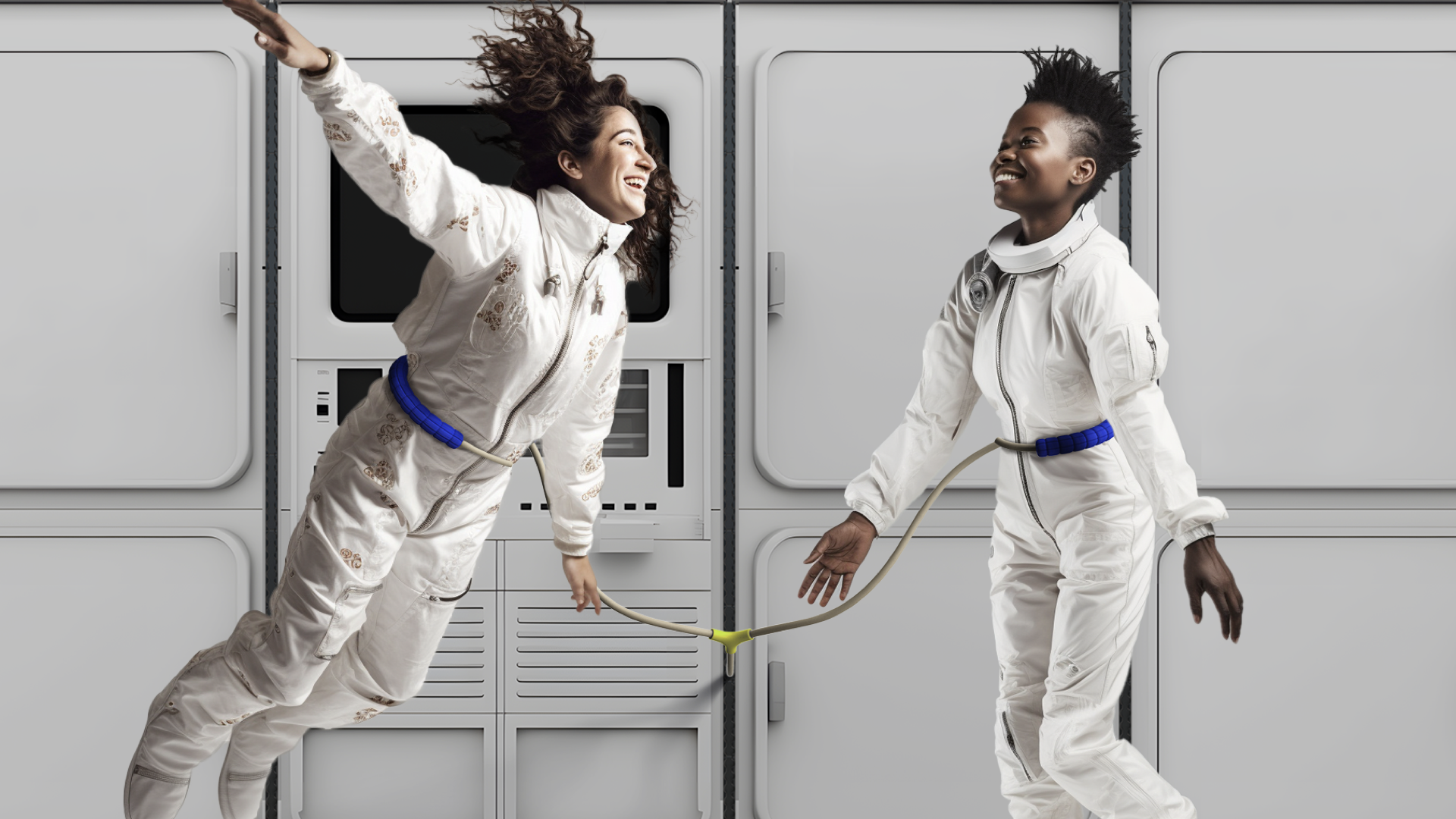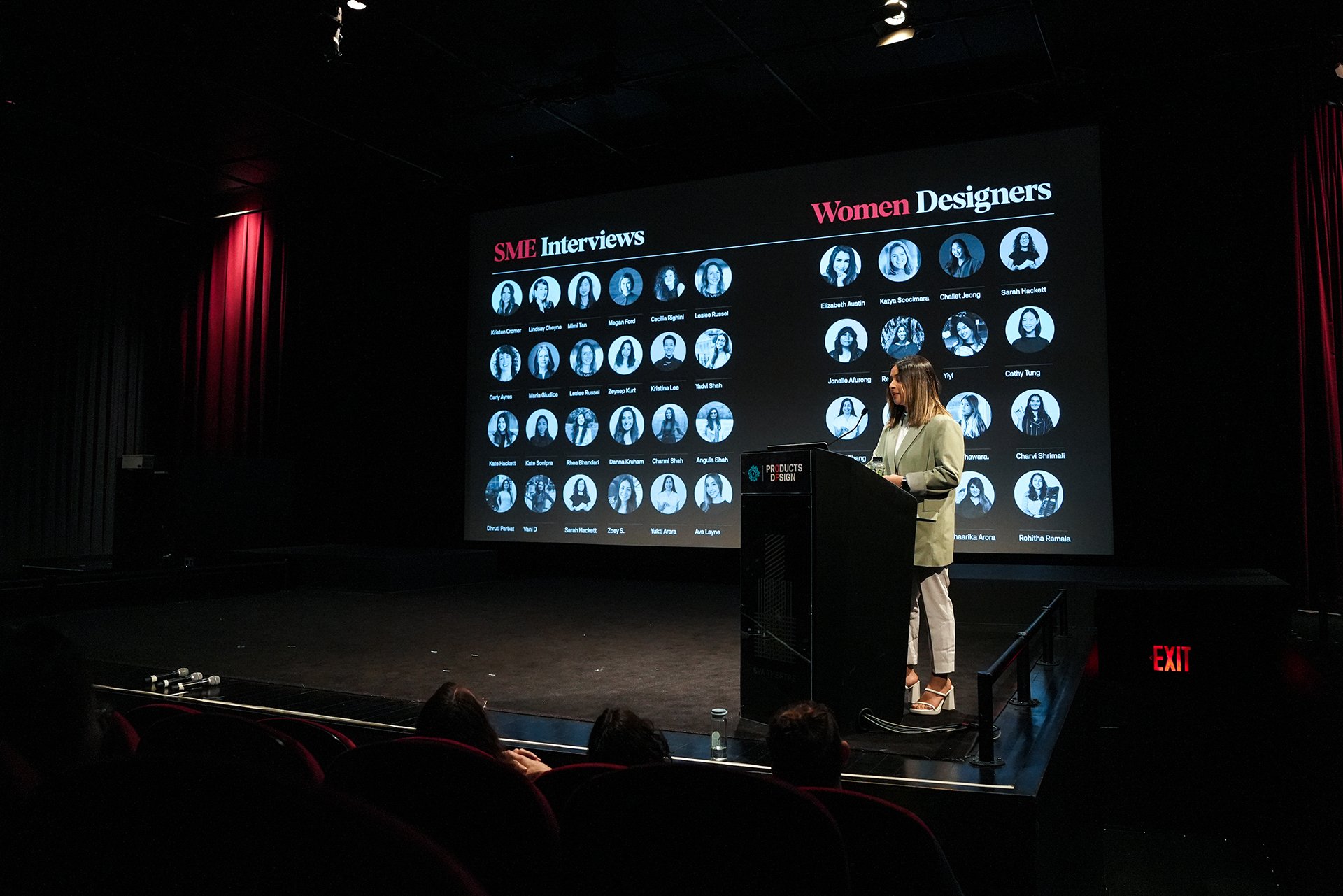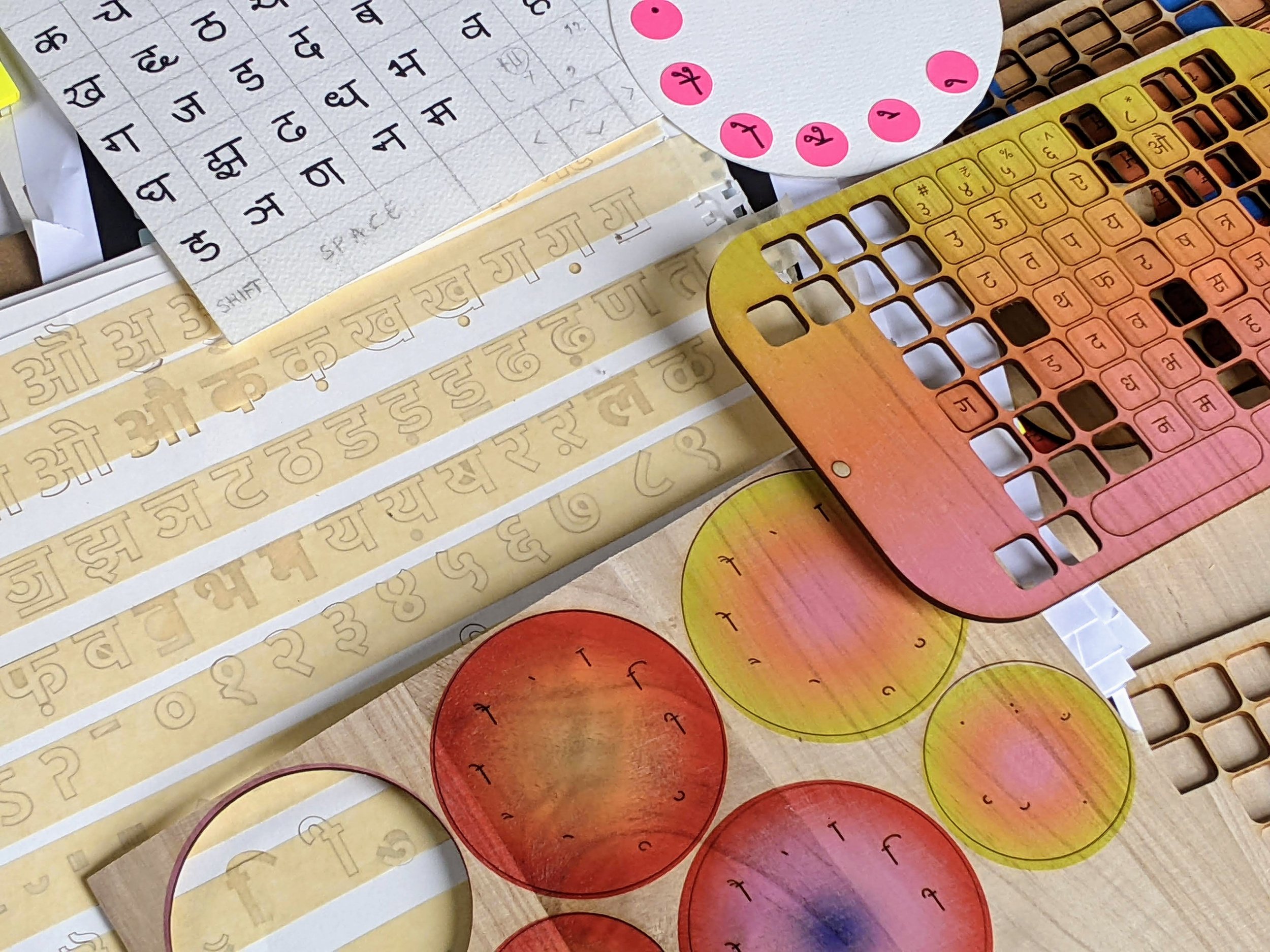
Student Projects
Products, Mobile Apps, Platforms, Thesis Work, and Design Thinking.
Applications are open! Deadline Jan. 15
〰️
Applications are open! Deadline Jan. 15 〰️
Featured Projects
Latest Projects
We Too Belong Here: Uniting and Strengthening South Indians Through Community Collaboration
Heba Jaleel’s thesis, We Too Belong Here: Uniting and Strengthening South Indians through Community Collaboration, tackles the issue of South Indian culture being overlooked and misrepresented within contemporary American society. In an increasingly diverse American landscape, the establishment and nurturing of a cohesive South Indian community holds immense significance. This thesis asserts the importance of South Indian representation in the United States and advocates for the creation of platforms and initiatives aimed at fostering community building and cultural preservation.
Horsing Around: Reconnecting Emerging Adults with Rough and Tumble Play
Brydon Yao's thesis, Horsing Around: Reconnecting Emerging Adults with Rough and Tumble Play, situates itself in the tension between growing up and acceptable forms of play. Mainstays of physical play during childhood, such as roughhousing, are great for stress mediation and resilience development. Yet, it is strongly discouraged as we grow up and face more stresses and adversities. The project interrogates the notion of juvenile physical play through a series of designs that set out to re-engage emerging adults with rough-and-tumble play.
Blooming: A playful, interactive device delivering serenity and enchantment
A playful, interactive device delivering serenity and enchantment designed by Ningfu Yang ’25.
Jellyfish: A Collection of Products Designed to Provide Support When You Need It Most
A diverse array of product concepts designed by Yuancong Jing ‘25 for our first-year course, Affirming Artifacts.
#UnPlugged: A Text-Fax Printer For Staying Connected to Your Loved Ones, Even When Offline
Harsha Pillai ’25 has experienced the feeling of digital overwhelm firsthand. Inspired by her own experience, she created #Unplugged, a text-to-fax printer designed to sit inconspicuously on your bookshelf, allowing you to stay unplugged while still receiving words of encouragement from a chosen support system.
Veu: Viewing the World in Partial Color
An exploration into how we perceive color and sight, designed by Zai Thakoor ’25.
HairTunes: A Suite of Musical Combs to Spark Joy
HairTunes is an imaginative line of musical combs that subverts your expectations, creating a new yet practical multi-sensory morning ritual. As you style your hair, each comb makes unique sounds that inject excitement and vitality into your routine. Created as part of Xinyue Wu's thesis, Xinyue: Delight in the Everyday, HairTunes effortlessly reinvigorates the mundane act of combing and grooming.
Lipi: A Devanagari Keyboard for Typing in Hindi
Lipi is a speculative Devanagari keyboard that reimagines the typing experience beyond QWERTY. The project, which addresses the challenges of typing in Hindi, was created by Charvi Shrimali for her thesis, How India Looks: Localizing Design Tools for a Billion People.
Design for Disability Inclusion in Space: Wearable Anchoring in Microgravity
In his thesis, Beyond the Right Stuff: Designing for Disability Inclusion in Space, Corey McClelland designed Wearable Anchoring solutions for individuals with mobility disabilities in microgravity environments. Space exploration has traditionally excluded individuals with disabilities. With an increased focus on inclusive and universal design, Corey aims to ensure that everyone has the opportunity to participate in space exploration and research.
Preserving Humanness: Where Bodies and Technology Meet
How are we being shaped by technology? How will our bodies look and feel in the future? Who are we without technology? These curiosities have steered Erika Choe's thesis, Preserving Humanness: Where Bodies and Technology Meet.
Humans have always been deeply entangled with technology. From the first stone tools to modern phones and computers, technologies that surpass our physiological capabilities and enhance our experience of the world have shaped human history.
Technology makes what was impossible, possible. And while this can often be positive, it also holds its dangers. 27 years ago, Carl Sagan shared concerns about the impact we as a civilization would face if a technological monopoly strips us of our agency. In his book The Demon-Haunted World, he writes, "I have a foreboding…when awesome technological powers are in the hands of a very few…[the people's] faculties [fall] in decline, unable to distinguish between what feels good and what is true."
Mods: A Study into Adaptive Gaming
Jose "Achi" Martin's thesis, Mods, studies the benefits of adaptive gaming for people with motor skill disabilities and explores industry-changing ideas that combat ableism in today's gaming landscape. Jose was inspired by his beloved older brother, who suffered a prenatal ischemic stroke resulting in semi-paralysis on the right side of his body. Since childhood, the two shared a passion for playing video games together, and Jose watched in awe as his brother played using just one hand. Twenty years later, this is still the case.
Beyond the Right Stuff: Designing for Disability Inclusion in Space
Corey McClelland's thesis, Beyond the Right Stuff: Designing for Disability Inclusion in Space, centers around researching the challenges and opportunities of designing for disability inclusion in space. One major challenge is the lack of accessibility in space technology and infrastructure, as many tools and equipment used are not designed with the needs of individuals with disabilities in mind. Another challenge is the lack of representation of individuals with disabilities in the space industry. However, initiatives like AstroAccess and other disability-inclusive projects have pushed for change and increased industry representation. Corey's research has shown that individuals with disabilities have unique skills and perspectives that can be leveraged to create innovative solutions to space exploration challenges. The push for disability inclusion in space can also lead to a more accessible and inclusive society as a whole.
Well-rounded: Using Art to Enhance Interdisciplinary Learning
Cathy Tung's thesis, Well-rounded: Using Art to Enhance Interdisciplinary Learning, sheds light on the potential of art-integrated education to promote the development of hard and soft skills in children. Cathy highlights that traditional education, confined within classroom walls, can be mundane and unstimulating for children to engage with. Conversely, incorporating resources from art museums as a location-based learning tool can provide an interactive and engaging experience that presents opportunities for interdisciplinary learning. This approach can also address the budgetary constraints public schools face in providing adequate art education, particularly in the wake of the COVID-19 pandemic and the associated budget cuts.
From Margin To Center: Empowering Women in Creative Industries
Arshi Auleear has experienced the toll that biases can take on one's professional career, especially gender bias. In her thesis, From Margin To Center, she aims to empower women in creative industries by shedding light on this pervasive issue. Despite more than 57% of design school graduates being women, only 3% hold creative director positions, with gender discrimination being a significant reason for this disparity. Arshi's research involves conducting over thirty interviews with subject matter experts and women designers, and well as facilitating a co-creation workshop with fifteen women from various positions. Her ultimate goal is to understand why women leaders leave the design industry and how to retain them.
Beyond the Visuals: Reimagining Digital Accessibility for Blind and Low-Vision Communities
Jaemin Cho's thesis, Beyond the Visuals: Reimagining Digital Accessibility for Blind and Low-Vision Communities, investigates the pressing question of how blind and visually impaired (BLV) users can read and interact with digital images in the post-text era dominated by images. With over 7 million people in America alone experiencing some form of visual impairment, digital accessibility is crucial. Through his thesis project, Jaemin questions the status quo and proposes practical solutions for content creators and BLV users to make digital images accessible for all.
Temporal Illusions: Distorting Our Perceptions of Time
Cheryl Zhang's Thesis, Temporal Illusions: Distorting Our Perceptions Of Time, investigates the phenomenon of why time seemingly passes slower when we are younger, compared to the sensation of "time flying" as we grow older. If there are stages of human life that reflect variance in perception of time, what is the possibility of replicating and distorting the process?
How India Looks: Localizing Design Tools for a Billion People
For Charvi Shrimali, the inspiration for her thesis, How India Looks: Localizing Design Tools for a Billion People, was a famous proverb that her grandparents would often repeat to explain the diversity of their country. “कोस - कोस पर बदले पानी, चार कोस पर बानी” loosely translates as: “Every few miles, the water changes. Every four miles, the speech." India is a vast country with a population of 1.4 billion and counting. But its varied geographic, linguistic, economic, social, and cultural landscapes means each of these 1.4 billion individuals look, talk, eat, work, and live very differently from each other. This makes India a complex, diverse and complexly diverse country.
Pasos: Design Interventions for Gendered Agency in Latin Partner Dance
Monica Albornoz's thesis, Pasos: Design Interventions for Gendered Agency in Latin Partner Dance, explores ways to break gender norms in cosmopolitan partner dance. Specifically, her thesis investigates the notion that women take the role of followers and men the role of leaders. Monica argues that although gender norms affect all dancers, the bias particularly affects cisgender feminine women.
Xinyue: Delight in the Everyday
Are you seeking to make your daily life more joyful without spending too much effort or money? Xinyue Wu's thesis project, Xinyue: Delight in the Everyday, offers simple, affordable solutions for 24-35-year-old workers. By transforming ordinary experiences into delightful ones and using everyday products as emotional intervention tools, Xinyue aims to bring joy into people's lives in a more accessible and sustainable way. With this approach, individuals can unconsciously infuse their daily lives with new-found vitality and happiness.
Fifteen: Introducing an All-in-One Virus Rapid Test
Think about the last time you took a rapid COVID-19 home test. Every brand has a different protocol, instructions can often be confusing, results can be unclear, and the amount of wasteful packaging is truly excessive. The Fifteen Home Kit —getting its name from the familiar waiting period interval—is an all-in-one solution with easy-to-follow steps that fits seamlessly in a purse or back pocket.










